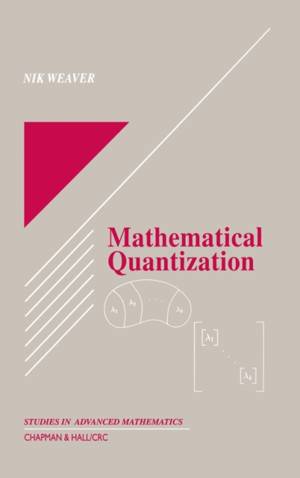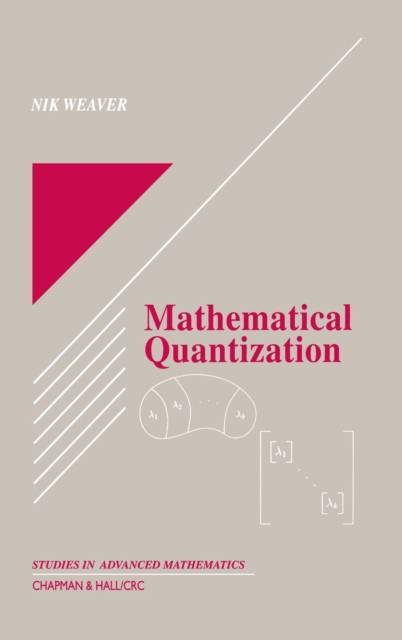
Je cadeautjes zeker op tijd in huis hebben voor de feestdagen? Kom langs in onze winkels en vind het perfecte geschenk!
- Afhalen na 1 uur in een winkel met voorraad
- Gratis thuislevering in België vanaf € 30
- Ruim aanbod met 7 miljoen producten
Je cadeautjes zeker op tijd in huis hebben voor de feestdagen? Kom langs in onze winkels en vind het perfecte geschenk!
- Afhalen na 1 uur in een winkel met voorraad
- Gratis thuislevering in België vanaf € 30
- Ruim aanbod met 7 miljoen producten
Zoeken
€ 320,95
+ 641 punten
Omschrijving
With a unique approach and presenting an array of new and intriguing topics, Mathematical Quantization offers a survey of operator algebras and related structures from the point of view that these objects are quantizations of classical mathematical structures. This approach makes possible, with minimal mathematical detail, a unified treatment of a variety of topics. Detailed here for the first time, the fundamental idea of mathematical quantization is that sets are replaced by Hilbert spaces. Building on this idea, and most importantly on the fact that scalar-valued functions on a set correspond to operators on a Hilbert space, one can determine quantum analogs of a variety of classical structures. In particular, because topologies and measure classes on a set can be treated in terms of scalar-valued functions, we can transfer these constructions to the quantum realm, giving rise to C*- and von Neumann algebras. In the first half of the book, the author quickly builds the operator algebra setting. He uses this as a unifying theme in the second half, in which he treats several active research topics, some for the first time in book form. These include the quantum plane and tori, operator spaces, Hilbert modules, Lipschitz algebras, and quantum groups. For graduate students, Mathematical Quantization offers an ideal introduction to a research area of great current interest. For professionals in operator algebras and functional analysis, it provides a readable tour of the current state of the field.
Specificaties
Betrokkenen
- Auteur(s):
- Uitgeverij:
Inhoud
- Aantal bladzijden:
- 296
- Taal:
- Engels
- Reeks:
Eigenschappen
- Productcode (EAN):
- 9781584880011
- Verschijningsdatum:
- 31/05/2001
- Uitvoering:
- Hardcover
- Formaat:
- Genaaid
- Afmetingen:
- 310 mm x 246 mm
- Gewicht:
- 576 g

Alleen bij Standaard Boekhandel
+ 641 punten op je klantenkaart van Standaard Boekhandel
Beoordelingen
We publiceren alleen reviews die voldoen aan de voorwaarden voor reviews. Bekijk onze voorwaarden voor reviews.









